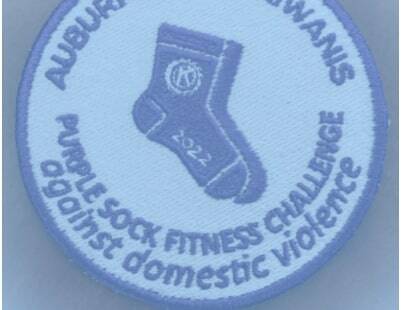For years, the Auburn Police Department has logged domestic violence calls, many of them involving children, nearly every day.
A year or so ago, the as-yet unexplored implications of having kids involved in so many of those incidents prompted the APD to take a granular look at the problem and to see what it could do.
From that study came sobering statistics: 45 percent of the kids enrolled in the Auburn School District who are involved in those 911 calls are up against some sort of domestic violence in their homes.
Each morning, three to five students enter their schools having suffered some sort of trauma the night before, said Rhonda Larson, assistant superintendent for family engagement and student success in the Auburn School District.
“That’s what we know about,” Larson said.
Trauma, encompassing neglect, abandonment, beatings, seeing relatives pass away, even students who’ve witnessed the murders of family members.
Former Auburn City Councilmember John Partridge said his wife, Shirley, a kindergarten teacher, once had a student in class who had watched his father cut his mother’s throat the night before.
“How great of an attention span do you think that kid’s going to have?” Partridge asked.
Auburn Police Officer Jessica Smith approached the Auburn School District and from the emergent collaboration came a program called Handle With Care.
“We realized it was a bigger issue than what we were prepared for,” said Smith.
Here’s how it works. First, Smith tracks any and all calls involving children, from car accidents to domestic violence incidents to assaults, and then passes the information to the school district — name only. From there, the district contacts school principals about any children under their wing who may need attention.
School district staff greet those children, as they do all kids, the best way they can at the start of each day, Larson said.
“They know that they are the very first person to connect with that student, so they become that stabilizer, that de-escalator, that barrier addressor in order to be able to meet the needs of their kids,” Larson said.
But there is a problem, Larson said. Too often staff perform the crucial task of greeting the kids with little to no training in what to look for.
“Our staff really needs some help,” said Larson.
That help arrives for the first time this summer in an extension of the Handle With Care program called the Intervention Academy. It will teach staff what they need to know, what to look for, and how to keep themselves and the kids safe.
The plan is for this academy to become a permanent component.
Robert Powell, Prevention and Intervention Specialist for the Auburn School District, is its point person — the guy who talks to the kids about their issues.
“Could be something that’s going on with them, their family or their peers. In my time, I’ve found other barriers students are up against. I feel the Handle With Care program acts as a great assistance for us to pinpoint a lot of these issues going on with the students,” Powell said.
“Getting the training is definitely needed because there are so many kids that have these things that we are not even aware about, which affects the school and affects the work, so we are not focusing on the immediate needs of these students. And addressing the school piece becomes second nature because a lot of these kids have so many things going on.
“There are things that our staff and our teachers are not privy to. So, having this training, recognizing these attributes or behaviors these kids are displaying would definitively help in any way possible. I pride myself in trying to meet kids at their level. We don’t ask the right questions at all times because we really don’t know. This will be the first step in our progression of helping these youth and meeting them where they’re at,” said Powell.
Larson said the program will cost about $17,000 to put on in Auburn.
Enter Auburn’s Kiwanis Club of the Valley.
As a Kiwanian, Partridge explains, he agreed to raise $7,000 from corporate sponsors if the club could raise $10,000. It agreed. Its fundraising drive, The Purple Sock Fitness Challenge, ends on March 31, but at this time is still about $3,000 short of what is needed, said Partridge who is chairing the effort. The club could use the community’s help to get it over that last hurdle.
“With your help, we will be able to provide training this summer,” Larson said in a video posted online.
To learn more the Purple Sock Fitness Challenge and how you can help, visit www.charityfootprints.com/eventdetails?id=837.
“It’s an exciting time to be able to help these children out further, not only in their home life, but in their school life, too,” Officer Smith said.


